Ombudsman calls for prison isolation reform after Territorians kept in hot humid cells for months
One Territorian was locked in isolation for 144 hours for blowing a kiss. See why prisoners told the anti-torture watchdog they were being ‘broken’.
Politics
Don't miss out on the headlines from Politics. Followed categories will be added to My News.
UPDATE: The screams of other prisoners through the night, meals pushed through ‘judas hatches’, no human contact for days and no escape from a hot, humid cell.
These are the conditions Territorians are being exposed while locked in prolonged isolation, in some cases for weeks, at Darwin Correctional Centre.
NT Ombudsman Peter Shoyer’s report into separate confinement was tabled to the parliament on Wednesday, revealing possible breaches of international agreements on torture and the humane treatment of prisoners.
The 124-page report investigated the use of isolation practices, ‘administrative separation’ and the more formal Intensive Management Plan (IMP).
Administrative separation is the isolation of a prisoner for management purposes, while an IMP is meant to address persistent bad behaviour.
Mr Shoyer reviewed 36 instances where 29 Territorians were isolated for more than three days between October 2022 and March 2023.
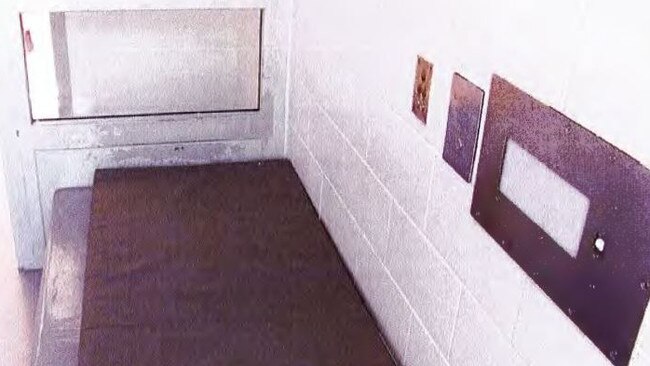
“All prisoners experienced separate confinement of physical isolation for more than 22 hours a day without apparent meaningful human contact,” Mr Shoyer said.
The watchdog said decades of studies had shown that isolation could trigger anxiety, depression and self-harm, psychosis, even permanent cognitive impairment and post-traumatic stress disorder.
Concerningly he pointed out that 38 per cent of prisoners placed under these restrictive orders already had a known history of self-harm ‘at risk’ episodes, while one had a known acquired brain injury and another was found to be unfit to plea due to mental impairment.
The watchdog raised the alarm over the lack of clear record-keeping, and potentially ‘disproportionate’ and ‘punitive’ use of separations.
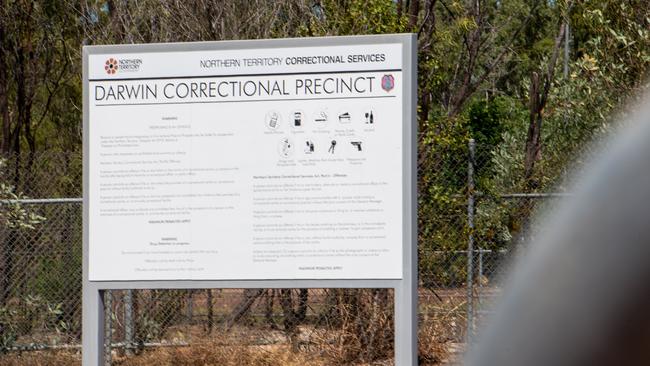
Mr Shoyer highlighted of the 239 instances of administrative separation over six months, only 16 lasted more than three days with one man locked down for 11 days.
He said there were no files that showed the prisoners were able to access the “minimum” one hour out of their cells per day, a potential breach of national Guiding Principles for Corrections Australia and international agreements.
Mr Shoyer found nearly 70 per cent of the extended administrative separations were sparked either due to an assault which resulted in no injury or ‘threatening behaviour’.
In one case study a prisoner ‘Wally’ was placed in confinement after blowing a kiss while walking into his cell.
When staff told him he would be isolated, he took up a “fighting stance” with a broom and was then hit with capsicum spray.
“Wally was in separate confinement for six days,” Mr Shoyer said.

He said while staff should not be exposed to assaults of threats, it was critical they were provided with “sufficient resources, alternative strategies and training so they have more options within reach to manage stressful situations in that sector”.
While administrative separation was limited to a maximum of 14 days, Mr Shoyer raised his concern that IMPs could last for an “indefinite period”.
Mr Shoyer said IMPs varied between 21 and 120 days, although said there was evidence that may have lasted over 200 days.
While there are four progressive stages of the IMP restrictions, some prisoners were stuck under highly restrictive plans.
Prisoners told the watchdog that “IMP is torturing” and left them “worse” and “f — ked in the head”.

“I say that coz I see a lot of mates come back broken from it, mental,” one prisoner said.
“Their loved ones are freaking out about why did that happen.”
Mr Shoyer said one prisoner ‘Oli’ was under a highly restrictive supervised management plan for four of his six months under an IMP, with no meaningful human contact and nothing to alleviate boredom.
While the prison provided him with one religious book, Mr Shoyer said he was later told “Oli is illiterate”.
“Where time out of cell (across the IMPs) was provided it was inconsistent and irregular in duration, often did not meet the minimum requirements of one hour per day,” Mr Shoyer said.
Another prisoner ‘Shaun’ was exposed to multiple “rolling” episodes of highly restrictive conditions, which usually ended in him lashing out once released.
“There is nothing in Shaun’s case to show how separate confinement for this extended period was anything but counter-productive,” Mr Shoyer said.
“Considerable evidence shows that isolation can magnify feelings of anger, reduce impulse control and cause prisoners to engage in further violence post release because of ‘pent-up
rage.’”
He said keeping confined prisoners within the management cells in Sector 5 meant they were sleeping next to the highest security prisoners.
“Cell conditions are not therapeutic as prisoners can experience disruptions to sleep from frequent yelling, banging, staff movements and at-risk episodes,” Mr Shoyer said.
In his five recommendations the Ombudsman has called for alternatives approaches, a review of policies and procedures to ensure isolation was a ‘last resort’ and for the shortest time possible, and better record keeping.
Corrections Commissioner Matthew Varley said while separate confinement was a “necessary measure” he committed to reviewing the prison system’s directives, policies, procedures and training programs in light of the report.
The Ombudsman proposed changes included that staff had to demonstrate alternative measures had been “tried and failed”, greater oversight over confinement in excess of 72 hours.
Mr Shoyer said he would reduce the maximum period for administrative separation to 10 days, and limited IMP confinement to 14 days “other than in exceptional circumstances”.
He also suggested more appropriate and therapeutic cell-based activities.
A previous version of this article stated that Corrections Commissioner Matthew Varley outlined specific proposed changes, however that review of the prison system’s directives, policies, procedures and training programs is still ongoing.
INITIAL: Territorians are reportedly being left in isolation for months in Darwin prison as Corrections is investigated by anti-torture watchdogs.
The NT Ombudsman Peter Shoyer is expected to soon table his own initiative investigation into the use of prolonged isolation practices in Darwin Correctional Centre.
The report is understood to investigate multiple ways in which prisoners may be restricted to their cells, which includes intensive management plans, those secluded due to acute mental health distress, and inmates who have been separated “to maintain the security and good order of the facility”.
Details of the Ombudsman’s report will not be made available until it is tabled to the NT parliament.
The latest Ombudsman annual report, which has been made publicly available, foreshadowed the investigation, which follows a series of complaints about separate confinement practices in Territory Correctional facilities.

In his latest annual report Mr Shoyer revealed that one prisoner had been subject to “very restricted conditions for a period of months”.
He said the prisoner was under an Intensive Management Plan at the time, which was meant to address “challenging and persistent behaviour”.
Mr Shoyer said this IMP did not allow “meaningful human contact”, access to therapeutic sessions, and they were denied items to keep them “stimulated” while isolated.
“(The IMP) was overly lengthy and not reviewed frequently enough,” Mr Shoyer said.
While in theory IMPs are used to address problematic behaviour, Mr Shoyer said in practice they relied “too heavily on restrictive practices” and did not provide therapeutic assistance to address underlying issues.
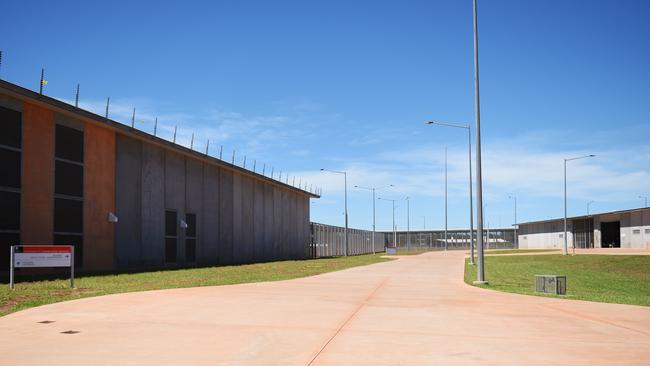
He said in the specific case of the prisoner the prolonged use of restrictive practices possibly worsened their “negative behaviour”.
It comes five months after the United Nations anti-torture inspection of Darwin Correctional Centre also found prisoners were kept in isolation in small, hot cells for months at a time.
The Optional Protocol to the Convention against Torture and Other Cruel, Inhuman or Degrading Treatment or Punishment publicly released its investigation into Australia’s detention facilities in December, revealing reports of multiple Holtze prisoners who had been “kept in solitary confinement for months at a time in a small cell”.
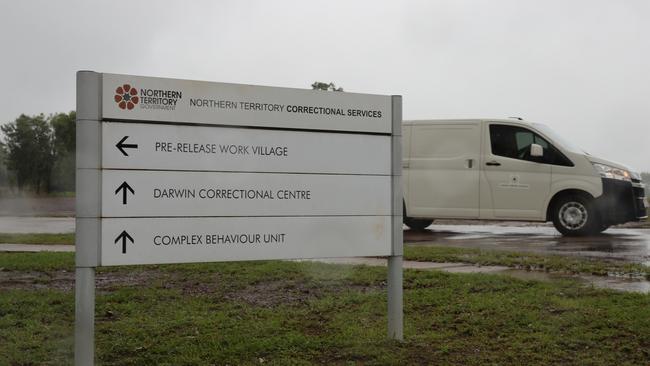
The OPCAT inspectors said they were left “without any contact with family or updates on current affairs, and with no television or books”.
The UN said one isolated prisoner was subject to “further disciplinary sanction” with the cell fans removed as temperatures rose above 34 degrees.
“In a number of locations, detainees subject to disciplinary regimes were only entitled to one hour of fresh air a day … in small, isolated areas enclosed with metal bars,” the UN report said.
The UN has stated that “prolonged” solitary confinement of more than 15 consecutive days is regarded as a form of torture.

Despite the reports of prisoners being isolated for “months”, Corrections has maintained that the use of confinement cannot exceed 14 days.
“The vast majority of separate confinement periods cease within 48 hours,” a spokesman said.
“Separate confinement is generally used in response to a situational or unexpected incident.”
Corrections confirmed in the 12 months since May 2023, 492 prisoners have been placed in separate confinement.
“All are required to be reviewed … within two hours and most are removed from the separate confinement the same day, or following day,” the spokesman said.
He said under confinement a prisoner was still able to access a three-by-four metre yard, have electronic contact with staff and could speak to other prisoners “through a ventilated door”, while family visits were limited to half an hour.
Corrections also said prisoners could be separated from the rest of the general prison population to maintain “the good order and security of the facility”.
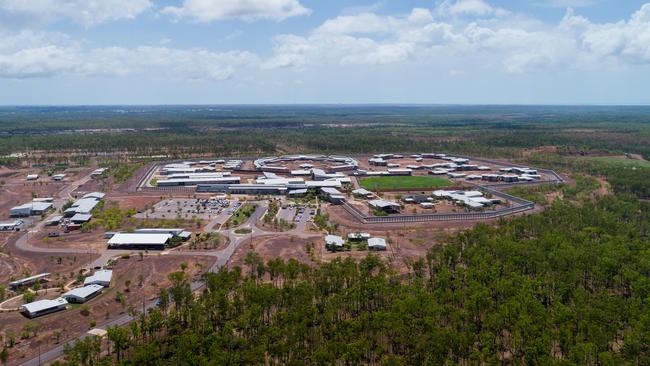
“There are strict policies in place to manage any prisoner placed in separate confinement, with a focus to releasing them from restrictions as soon as possible,” the spokesman said.
Corrections has confirmed that the department was reviewing a number of directives, including the IMP system.
The Corrections spokesman said IMPs were for prisoners requiring an “overall higher level of supervision”, and can include separating them from others.
“IMPs can also be inclusive of entitlements and privileges that includes access to calls, visits, medical checks, exercise, and engagement with other prisoners,” he said.
“An IMP will remain in place until the necessary (changes) have taken place to ensure the safety of the prisoner and good order of the prison.”
NT Health said prisoners separated due to self-harming threats were able to access care services, including “brief interventions, medication review and psychiatric assessment”.
“Prisoners needing more intensive support can be seen by the visiting Forensic Mental Health Team,” a spokeswoman said.
“Mental health services for people in prison in the Northern Territory are managed by NT Correctional Services in the first instance, with specialist support provided by NT Health through consultant liaison and expert teams.”





